- Home
- H. Rider Haggard
The Brethren
The Brethren Read online
Produced by JoAnn Rees [email protected]
The Brethren
by H. Rider Haggard
Dedication
R.M.S. Mongolia, 12th May, 1904 Mayhap, Ella, here too distancelends its enchantment, and these gallant brethren would havequarrelled over Rosamund, or even had their long swords at eachother's throat. Mayhap that Princess and heroine might havefailed in the hour of her trial and never earned her saintlycrown. Mayhap the good horse "Smoke" would have fallen on theNarrow Way, leaving false Lozelle a victor, and Masouda, theroyal-hearted, would have offered up a strangely differentsacrifice upon the altars of her passionate desire.
Still, let us hold otherwise, though we grow grey and know theworld for what it is. Let us for a little time think as wethought while we were young; when faith knew no fears foranything and death had not knocked upon our doors; when youopened also to my childish eyes that gate of ivory and pearlwhich leads to the blessed kingdom of Romance.
At the least I am sure, and I believe that you, my sister, willagree with me, that, above and beyond its terrors and itspitfalls, Imagination has few finer qualities, and none, perhaps,more helpful to our hearts, than those which enable us for anhour to dream that men and women, their fortunes and their fate,are as we would fashion them.
H. Rider Haggard. To Mrs. Maddison Green.
Contents:
Author's NotePrologueChapter One: By the Waters of Death CreekChapter Two: Sir Andrew D'ArcyChapter Three: The Knighting of the BrethrenChapter Four: The Letter of SaladinChapter Five: The Wine MerchantChapter Six: The Christmas Feast at SteepleChapter Seven: The Banner of SaladinChapter Eight: The Widow MasoudaChapter Nine: The Horses Flame and SmokeChapter Ten: On Board the GalleyChapter Eleven: The City of Al-je-balChapter Twelve: The Lord of DeathChapter Thirteen: The EmbassyChapter Fourteen: The Combat on the BridgeChapter Fifteen: The Flight to EmesaChapter Sixteen: The Sultan SaladinChapter Seventeen: The Brethren Depart from DamascusChapter Eighteen: Wulf Pays for the Drugged WineChapter Nineteen: Before the Walls of AscalonChapter Twenty: The Luck of the Star of HassanChapter Twenty-One: What Befell GodwinChapter Twenty-Two: At JerusalemChapter Twenty-Three: Saint RosamundChapter Twenty-Four: The Dregs of the Cup
"Two lovers by the maiden sate, Without a glance of jealoushate; The maid her lovers sat between, With open brow and equalmien;--It is a sight but rarely spied, Thanks to man's wrath andwoman's pride."
Scott
AUTHOR'S NOTE: Standing a while ago upon the flower-clad plainabove Tiberius, by the Lake of Galilee, the writer gazed at thedouble peaks of the Hill of Hattin. Here, or so tradition says,Christ preached the Sermon on the Mount--that perfect rule ofgentleness and peace. Here, too--and this is certain--afternearly twelve centuries had gone by, Yusuf Salah-ed-din, whom weknow as the Sultan Saladin, crushed the Christian power inPalestine in perhaps the most terrible battle which that land ofblood has known. Thus the Mount of the Beatitudes became theMount of Massacre.
Whilst musing on these strangely-contrasted scenes enacted in oneplace there arose in his mind a desire to weave, as best hemight, a tale wherein any who are drawn to the romance of thatpregnant and mysterious epoch, when men by thousands were glad tolay down their lives for visions and spiritual hopes, could finda picture, however faint and broken, of the long war betweenCross and Crescent waged among the Syrian plains and deserts. OfChristian knights and ladies also, and their loves and sufferingsin England and the East; of the fearful lord of the Assassinswhom the Franks called Old Man of the Mountain, and his fortresscity, Masyaf. Of the great-hearted, if at times cruel Saladinand his fierce Saracens; of the rout at Hattin itself, on whoserocky height the Holy Rood was set up as a standard and captured,to be seen no more by Christian eyes; and of the Iast surrender,whereby the Crusaders lost Jerusalem forever.
Of that desire this story is the fruit.
PROLOGUE

 The Ivory Child
The Ivory Child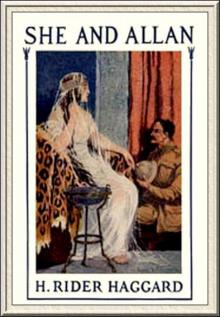 She and Allan
She and Allan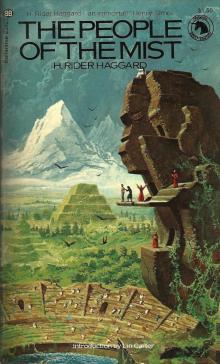 The People of the Mist
The People of the Mist She
She Morning Star
Morning Star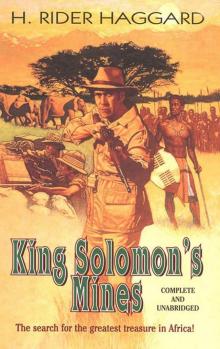 King Solomon's Mines
King Solomon's Mines She: A History of Adventure
She: A History of Adventure Cleopatra
Cleopatra Ayesha, the Return of She
Ayesha, the Return of She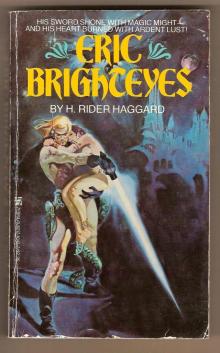 Eric Brighteyes
Eric Brighteyes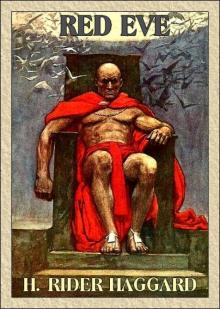 Red Eve
Red Eve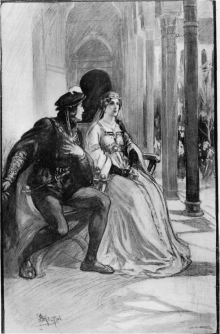 Fair Margaret
Fair Margaret When the World Shook
When the World Shook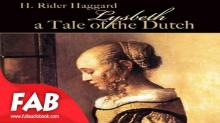 Lysbeth, a Tale of the Dutch
Lysbeth, a Tale of the Dutch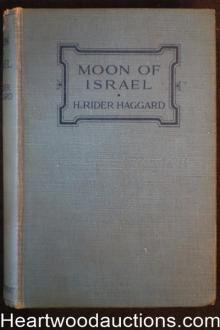 Moon of Israel: A Tale of the Exodus
Moon of Israel: A Tale of the Exodus Long Odds
Long Odds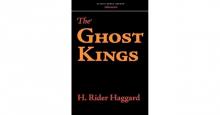 The Ghost Kings
The Ghost Kings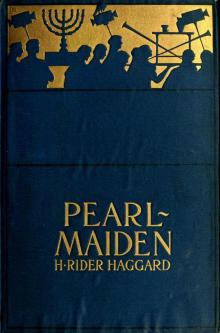 Pearl-Maiden: A Tale of the Fall of Jerusalem
Pearl-Maiden: A Tale of the Fall of Jerusalem Allan and the Holy Flower
Allan and the Holy Flower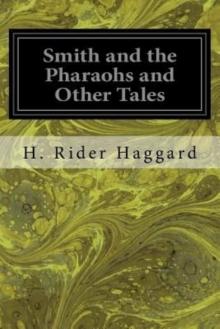 Smith and the Pharaohs, and other Tales
Smith and the Pharaohs, and other Tales The Wanderer's Necklace
The Wanderer's Necklace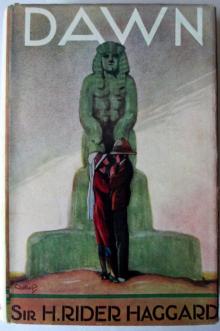 Dawn
Dawn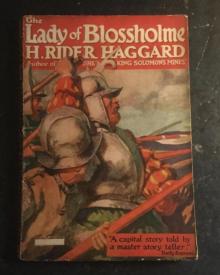 The Lady of Blossholme
The Lady of Blossholme Stella Fregelius: A Tale of Three Destinies
Stella Fregelius: A Tale of Three Destinies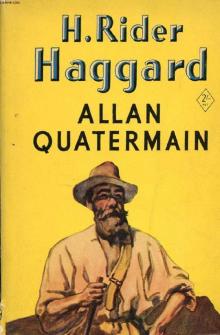 Allan Quatermain
Allan Quatermain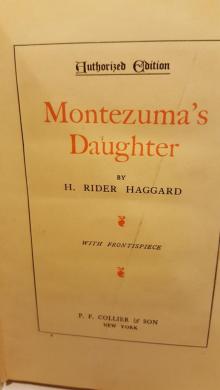 Montezuma's Daughter
Montezuma's Daughter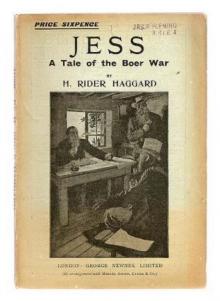 Jess
Jess The Brethren
The Brethren Allan's Wife
Allan's Wife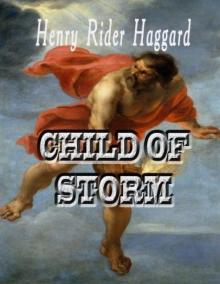 Child of Storm
Child of Storm Queen Sheba's Ring
Queen Sheba's Ring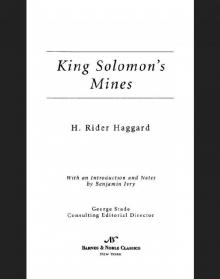 King Solomon's Mines (Barnes & Noble Classics Series)
King Solomon's Mines (Barnes & Noble Classics Series)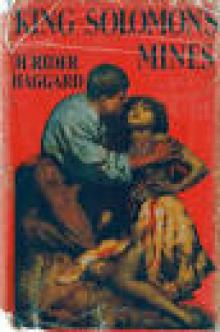 Complete Allan Quatermain Omnibus - Volumes 1 - 10
Complete Allan Quatermain Omnibus - Volumes 1 - 10